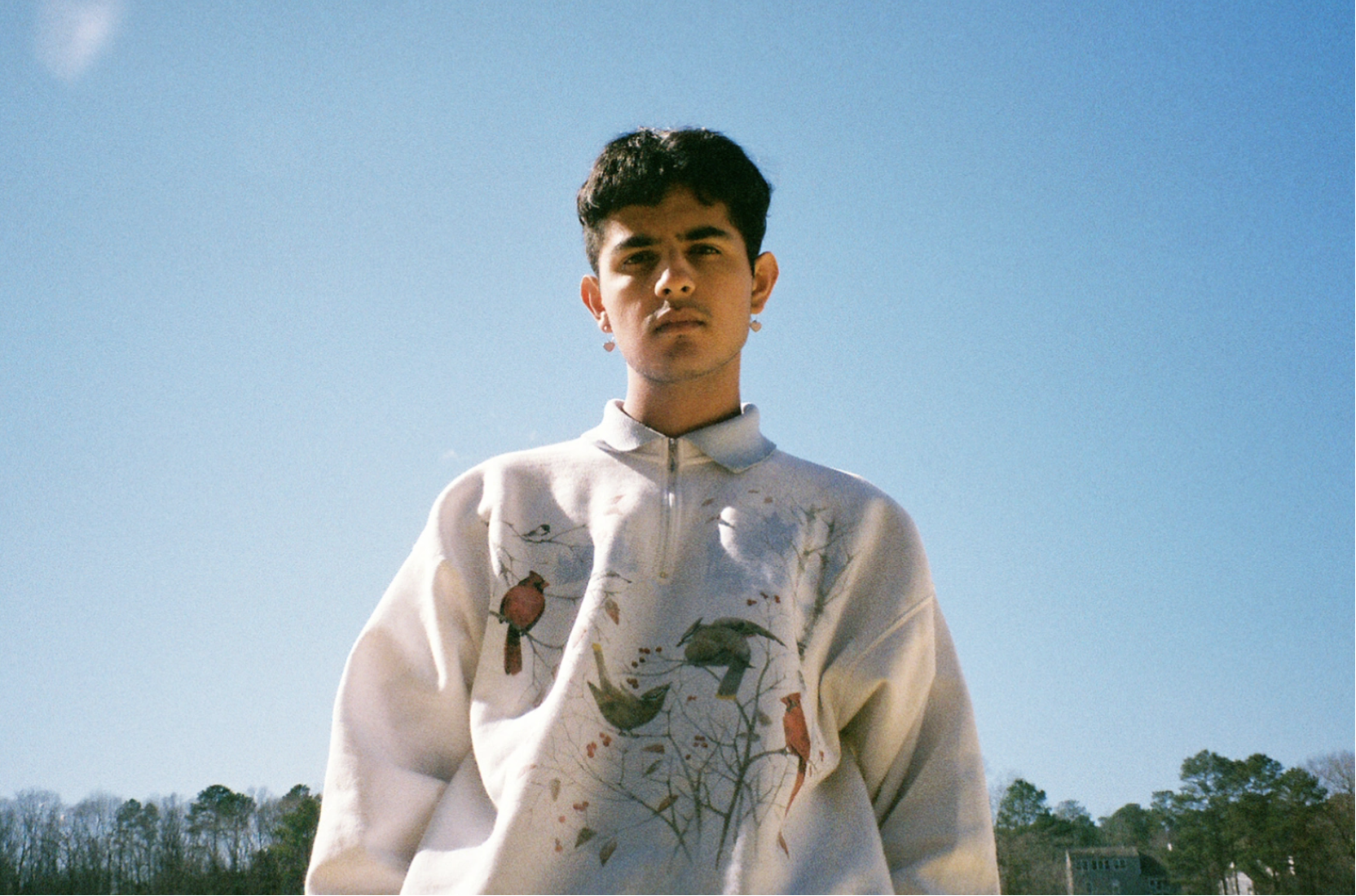“Good job, Curtis”
That’s how every Curtis Waters song starts: with a little bit of praise directed towards himself. There’s nothing wrong with that—every artist seems to have their signature, and here the praise is certainly earned. Waters’ newest single “RIOT,” an alternative anthem with a feature from upcoming artist chlothegod, fits perfectly into his most recent body of work. So why, then, does it sound so different from “Stunnin’,” the song that made him viral just two years prior?
“RIOT” matches up with Waters’ more recent music thematically and sonically, showcasing the same angst present in both “MANIC MAN” and “STAR KILLER,” his other latest singles. They all toe the line towards punk but settle for an alt-pop sound that mixes in elements from different genres—a hard shift away from the pop-rap of “Stunnin’.” Even with these labels, Waters’ music is, for the most part, genre-defying. Rather than fitting into preexisting categories, Waters prefers to carve out a space for himself in the music industry, making music by his own definitions.
Waters, whose real name is Abhinav Bastakoti, is a Nepali-Canadian artist who, like many others recently, got his big break on TikTok. After a 15-second clip of “Stunnin’” blew up on the app, Waters’ streams skyrocketed. Nearly 900k videos have used his TikTok sound, and the song has almost 300 million streams on Spotify in the US. He also currently boasts 1.3 million monthly listeners.
Despite these numbers and his newfound fame, Waters isn’t the biggest fan of the song. He’s mentioned throughout his social media and in interviews that he released “Stunnin’” as a joke. “It’s so crazy to me that a song I made as a complete joke is so much bigger than anything else I’ve actually put my heart into,” said Waters in one of his pinned TikToks.
In contrast, Waters told Ones To Watch that “RIOT” was “a labor of love.”
“It feels like a coming of age, like an immigrant story that I’ve been trying to tell since I was a kid, and I feel like I’m finally equipped to tell it,” said Waters. He details his struggles in the interview, not only as an immigrant from Nepal, but also as someone struggling with their mental health. Waters was diagnosed with bipolar disorder, and though he does consider himself a mental health advocate in his music, he also says that he just creates “what comes naturally” to him.
In the case of “RIOT,” “naturally” means a heavy bassline and techno beats reminiscent of early 2010s club music (or at least what someone who was seven years old at that time would assume was playing in clubs during that period). Waters starts the song off with a simple drum beat and his short intro, followed by chlothegod’s chanting, before diving straight into the song without any fade-in. Rather than tackling more serious subject matter like some of Waters’ other songs, chlothegod boasts of being the “baddest in the game,” flying private, and taking over like a pirate to start a riot. Her yelling softens to a whisper by the first verse, but her decrease in volume in no way reflects a decrease in confidence, calling herself the “coldest in the game” and bragging about not giving potential love interests a chance unless she gets designer gifts.
After chlothegod repeats the chorus, Waters chimes in with his verse, also hyping himself up and making it clear that he’s his own biggest fan. Not only is he “iconic,” and getting “plenty of offers and deals,” but he’s also “dumb rich” stating that he’s “been an asshole since “Stunnin'” / But the cash flow’s still runnin’.” To judge him based on his verse, he seems conceited, which is ironic considering that in one of his own songs, “Conceited,” he bemoans when someone else is. But, Waters’ braggadocious exaggerations are by no means intolerable. In fact, for the most part, they seem completely justified. He wasn’t even lying about racking up record deals—as Rolling Stone pointed out in their feature, Waters’ choice to remain an independent artist, despite companies reaching out to sign him, is “a threat to the major label system.”
At his core, Waters is just Abhinav Bastakoti, a small indie artist who blew up while balancing college with his part-time job at a smoothie shop. As mentioned in interviews, he grew up poor, which makes it completely understandable why he might make his hyperbolic claims of being incredibly rich and successful—it’s a dream to idealize. Who wouldn’t?
In terms of representation, Waters is also making waves. Despite his stage name—which derives from two of his favorite artists, Ian Curtis and Frank Ocean—often concealing his identity, Bastakoti is Nepali, making him one of the first South Asian artists to gain mainstream success since ZAYN. He’s paving the way for others after him, proving to an underrepresented group that they too can reach wide levels of success in the music industry. He’s gained a name for himself despite the factors working against him, and for that alone, he’s earned the right to boast all he wants.
Waters is also no stranger to collabs, even having worked with higher-profile names like Kim Petras on ElyOtto’s “Sugarcrash!” remix. But what makes “RIOT” so special is the fact that, as Waters described to Ones to Watch, it was the product of “just two friends being goofy.” Waters began sending beats to his childhood friend chlothegod, in November 2020, meaning “RIOT” was almost two years in the making. In the studio, their energies aligned, and the rest was history. Despite it being his song, Waters takes a backseat on the co-written single, allowing chlothegod’s powerful voice to shine throughout. While she sings multiple choruses and a verse, Waters only takes one verse and shares the outro. As a small artist herself, this song may very well be the big break chlothegod needs, one she very well seems to deserve.
In a way, “RIOT” mirrors “Stunnin’” in that the song is a byproduct of Waters just messing around with a friend. However, “RIOT” outshines “Stunnin’’’ in that the final product is something Waters is verbally proud of, especially with its subtle references to his background. The single might seem like a generic song in the same vein as “Stunnin’’’ to a casual listener, but, in actuality, “RIOT” provides a deeper commentary on Waters’ accomplishments and pays homage to his rightfully deserved successes.
“I spent a lot of time hating songs like stunnin but only recently I’ve realized how beautiful it is to make art for the pure purpose of fun,” Waters said in an Instagram post. “It feels very childish and magical and I want to tap back into that energy.”
Bastakoti is unabashedly himself and is producing music that doesn’t quite fit into any boundaries. He’s proud of his work and should be. As represented by choices like the surprise techno ending of “RIOT,” his music is fresh, unexpected, and fun. “Stunnin’” may have given him a feature in a Mercedes-Benz commercial, but “RIOT” gave him a sense of personal satisfaction, and to that I say:
Good job, Abhinav.






